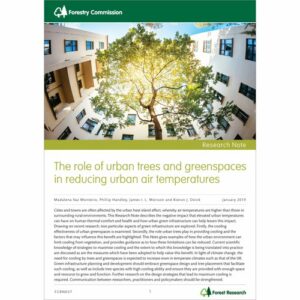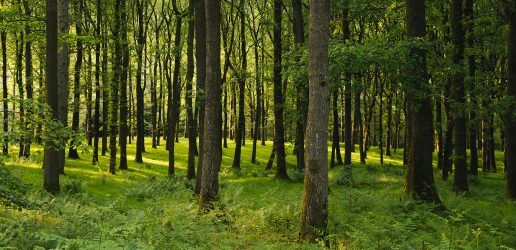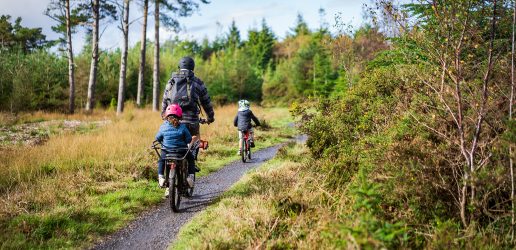As you may have noticed during the recent high temperatures, cities and towns frequently experience higher air temperatures than the surrounding countryside. This is because built-up and densely populated urban areas generate, trap and store heat to create localised warming – an effect named the ‘Urban Heat Island’.
During heat-waves this increase in urban temperatures can not only cause people to feel uncomfortable but for vulnerable groups such as young children and the elderly, it also poses a serious health risk which may lead to health problems such as exhaustion, respiratory illness, and heat stroke.
As our climate changes, it is expected that in the UK, heat-waves will happen more often, last longer, and be more intense. It is therefore important that we take action now to reduce the intensity of the Urban Heat Island.
Healthy urban trees are known to have a cooling benefit. They do this through the release of water vapour, in the process of evapotranspiration. Trees also provide cooling through the provision of shade and because they reflect more solar radiation and store less energy than many artificial surfaces such as concrete and asphalt.
However, not all urban trees cool the environment to the same extent. They have different characteristics that control how they grow, function, reflect and store energy. They therefore vary in their potential for reducing the severity of the Urban Heat Island.
The general tree characteristics that lead to maximum cooling include wide dense canopies and leaves that are light in colour or which have a surface which enhances reflection. A tree’s cooling potential will also be affected by the surrounding land-use, soil type and condition, water availability, and the local microclimate. It will only be able to provide cooling benefit to its full capacity if given the right environment to grow and thrive.

Looking for more information? A Forestry Commission Research Note summarises the role urban trees play in providing cooling and the factors that may influence this benefit. It also explains strategies to maximise cooling and the extent to which these are being used in practice.
Dr Kieron Doick, the urban forest research lead at Forest Research, will join a panel of experts at ‘FutureScape’ to discuss the benefits of urban trees and part-take in a Q&A session with the audience. He will be stressing that for British urban areas to become more resilient and adapted to our changing climate, the cooling and other benefits of trees need to be more frequently considered during the tree selection and management processes.

The British Woodlands Survey, 2025, which focuses on resilience launches.

Forest Research has released the results of the Public Opinion of Forestry Survey 2025 for England and the UK, Scotland and Wales.
New research has been published which explores how to enable and encourage access to woodlands for diverse members of the public.

The British Woodlands Survey, 2025, which focuses on resilience launches.

Forest Research has released the results of the Public Opinion of Forestry Survey 2025 for England and the UK, Scotland and Wales.
New research has been published which explores how to enable and encourage access to woodlands for diverse members of the public.